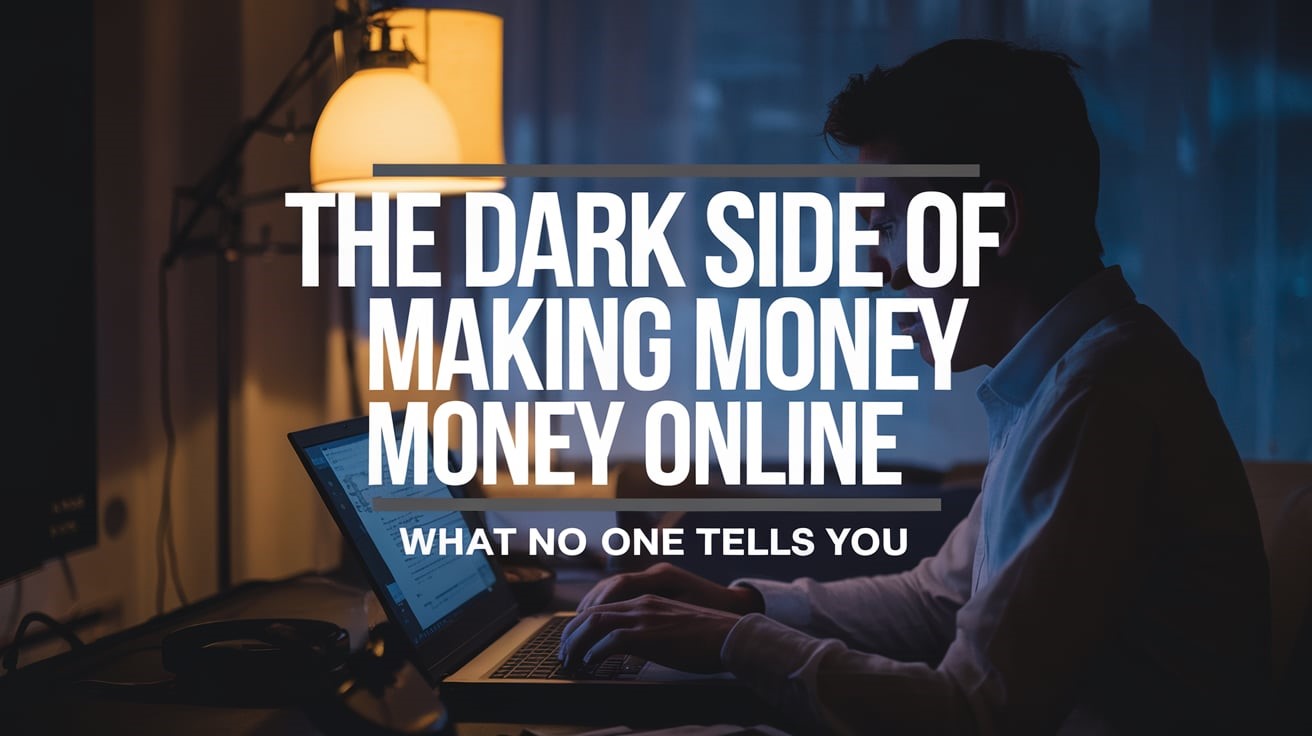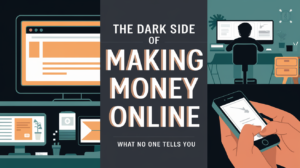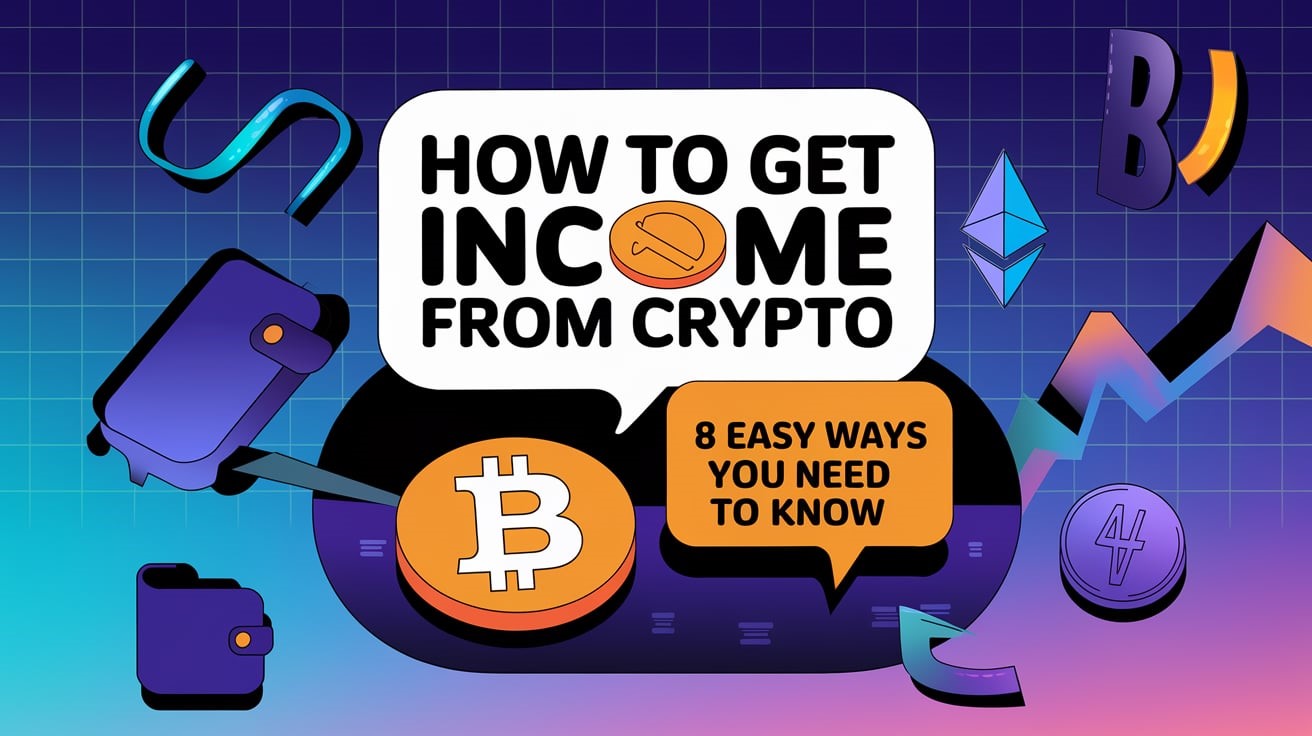The Dark Side of Making Money Online (What No One Tells You)
Introduction
Making Money Online is often portrayed as an effortless path to financial freedom. You see influencers flaunting luxurious lifestyles, online gurus selling their foolproof systems, and countless blog posts promising six-figure incomes from the comfort of your home. However, what most people don’t talk about are the challenges, risks, and potential downsides that come with earning money online.
In this post, we’ll explore the dark side of Making Money Online—the scams, burnout, financial instability, and mental toll that many face but few discuss. If you’re considering diving into the online money-making world, read on to ensure you’re prepared for both the rewards and the risks.
The Illusion of Easy Money
Many people start their online ventures believing it’s a quick and easy way to generate income. In reality, building a sustainable online business or income stream takes time, effort, and often a significant financial investment. Here’s why:
- High Competition: Whether you’re blogging, freelancing, selling courses, or starting an eCommerce business, you’ll face fierce competition.
- Algorithm Dependence: Platforms like YouTube, Google, and social media can change their algorithms overnight, impacting your traffic and income.
- Skill Requirement: Unlike the misleading “get rich quick” schemes, real online success requires learning digital marketing, content creation, SEO, and business management.
- Delayed Gratification: It may take months or even years before you see substantial earnings.
One example is John, a freelance writer who quit his job expecting to earn a full-time income online within three months. However, he struggled for nearly a year before establishing steady clients and financial stability.
The truth? Making Money Online is possible, but it’s rarely fast or effortless.
Scams and False Promises
For every legitimate opportunity, there are countless scams designed to exploit unsuspecting individuals. Some of the most common online money-making scams include:
- Ponzi Schemes & MLMs: These often require you to recruit others to earn, rather than selling a real product or service.
- Fake Job Offers: Some websites promise high-paying online jobs but ask for an upfront fee or personal information.
- Get-Rich-Quick Courses: Many self-proclaimed “gurus” sell overpriced courses filled with generic information you could find for free online.
- Fake Investments: Cryptocurrency, forex trading, and stock market schemes often target beginners with promises of guaranteed returns.
For example, Sarah invested in an expensive dropshipping course promising fast profits. She later realized the market was saturated, and the techniques taught were outdated. She lost thousands of dollars before learning how to build a sustainable business.
Before investing in any online program, always research thoroughly. Websites like BBB and Trustpilot can help verify legitimacy.
Financial Instability and Unpredictable Income
Unlike traditional jobs, Making Money Online often comes with an inconsistent income stream. Consider these financial challenges:
- Fluctuating Revenue: Freelancers, bloggers, and affiliate marketers often experience income variations depending on demand and seasonality.
- No Benefits or Job Security: There’s no employer providing health insurance, paid time off, or a retirement plan.
- Delayed Payments: Some clients, ad networks, or affiliate programs take weeks or even months to pay.
- Tax Implications: Self-employed individuals must manage taxes, deductions, and potential audits without employer assistance.
A real-life example is James, an affiliate marketer who made $10,000 one month but only $2,000 the next. Without proper financial planning, he struggled with bills and had to find additional income sources.
If you’re relying on online income, it’s crucial to have savings, diversify your income streams, and plan for financial fluctuations.
Burnout and Mental Health Struggles
Working online, especially in content creation, freelancing, or digital marketing, can lead to burnout and mental exhaustion. Here’s why:
- Long Hours: Many successful online entrepreneurs work 60+ hours a week, especially in the beginning.
- Isolation: Remote work can be lonely, affecting mental well-being.
- Performance Pressure: Constantly creating content, hitting targets, and dealing with social media criticism can be overwhelming.
- Lack of Work-Life Balance: The flexibility of working online often blurs the line between personal and professional time.
A popular YouTuber, Mark, openly discussed his burnout after years of creating content daily. He took a break, restructured his schedule, and now prioritizes mental health to sustain his online career.
To avoid burnout, set clear work-life boundaries, take breaks, and seek support when needed.
The Ethical Dilemma
Some people Making Money Online face ethical challenges. Certain industries, such as affiliate marketing, drop shipping, or influencer sponsorships, can lead to moral dilemmas, including:
- Promoting Low-Quality Products: Some influencers and bloggers endorse products they don’t use, just for commissions.
- Clickbait and Misinformation: Some content creators use misleading headlines to drive traffic.
- Exploiting Others: Some business models rely on underpaid freelancers or misleading marketing tactics.
- Privacy Concerns: Some online money-making strategies, like data harvesting, can put users’ information at risk.
It’s important to prioritize honesty and integrity in your online ventures.
How to Navigate the Risks of Making Money Online
If you’re still determined to pursue an online income, here are some tips to avoid common pitfalls:
- Do Your Research: Avoid scams by thoroughly vetting opportunities before investing time or money.
- Diversify Income Streams: Don’t rely on a single platform or method for earning; consider multiple income sources.
- Build Sustainable Skills: Focus on skills like SEO, content marketing, coding, or eCommerce that have long-term value.
- Create a Financial Safety Net: Have emergency savings to handle income fluctuations.
- Prioritize Mental Health: Maintain a work-life balance, connect with other online entrepreneurs, and take breaks.
- Stay Informed: Keep up with industry trends and algorithm changes to adapt your strategy accordingly.
- Legal Protection: If freelancing or selling products, ensure you understand contracts, copyrights, and consumer protection laws.
Conclusion
Making Money Online is not as easy or glamorous as many claim. While it offers freedom and opportunities, it also comes with significant risks, including financial instability, burnout, and ethical dilemmas. By understanding the challenges and preparing accordingly, you can navigate the online money-making world more wisely and sustainably.
If you found this article insightful, subscribe to our newsletter for more expert tips on online entrepreneurship, financial stability, and digital success!




